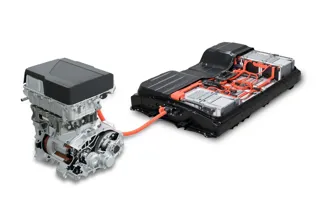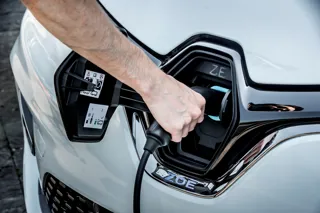Automotive industry analysts at GlobalData believe that electric vehicle (EV) battery leasing could be the key to boosting large-scale uptake.
The claims follows an announcement by Hyundai that it signed a memorandum of understanding (MoU) to work with the South Korean government as well as logistics, battery and mobility companies to demonstrate the electric vehicle (EV) battery leasing business.
Under the agreement, KST Mobility, a Korean taxi operator, will sell the ownership of batteries in newly purchased EVs to Hyundai Glovis, the battery lessor. KST Mobility then pays a monthly fee for battery usage. As a result, KST Mobility is able to have lower initial investment for EV purchases.
When the batteries are swapped after extensive usage, the removed batteries are reused in energy storage systems (ESS) for fast-charging EV taxis. To save cost, ESS is charged in the middle of the night when electricity rates are lowest and then charges EV taxis during daytime when electricity is comparatively expensive.
Bakar Sadik Agwan, senior automotive consulting analyst at GlobalData, said: “The MoU has potential to support the EV growth in South Korea and will be a use case for OEMs across the world.
“The cost of acquisition along with the availability of charging infrastructure and concerns related to battery-life are key factors that affect the large-scale uptake of electric vehicles. OEMs across the globe have been exploring opportunities to increase the uptake of electric vehicles through innovative business models, battery-as-a-service being one of them.”
An EV battery accounts for 30-40% of the upfront cost of the vehicle, so if the battery can separately be rented out or leased, the cost of owning and maintaining it can be divided over the vehicle’s lifetime.
GlobalData estimates a customer can lease an EV battery for more than eight years at a price that is equivalent to the purchase cost of an EV battery.
“Renting or leasing out batteries offers additional benefits such as timely inspection of battery residual values by service provider, free/warranted replacements and assistance by service provider in events of breakdown,” added Agwan.
He believes shared mobility, logistics and delivery companies with large fleets could gain significant cost-benefits with renting/leasing model covering repair, service and replacement of batteries.
Agwan said: “Some OEMs and governments in key markets such as China and Europe already have an active battery renting or leasing business model. However, it has not reached the required rate of commercialization globally. Hyundai’s implementation of the EV ecosystem with battery being rented or leased out can be a good example for other OEMs, government and stakeholders such as energy companies and mobility players across various countries to replicate the model to boost the uptake of electric vehicles.”
Renault previously offered a battery leasing option on its Zoe electric car, but the service was stopped in 2019 when the car maker said that residual values had improved to a point where the lease was no longer beneficial to customers.























Login to comment
Comments
No comments have been made yet.